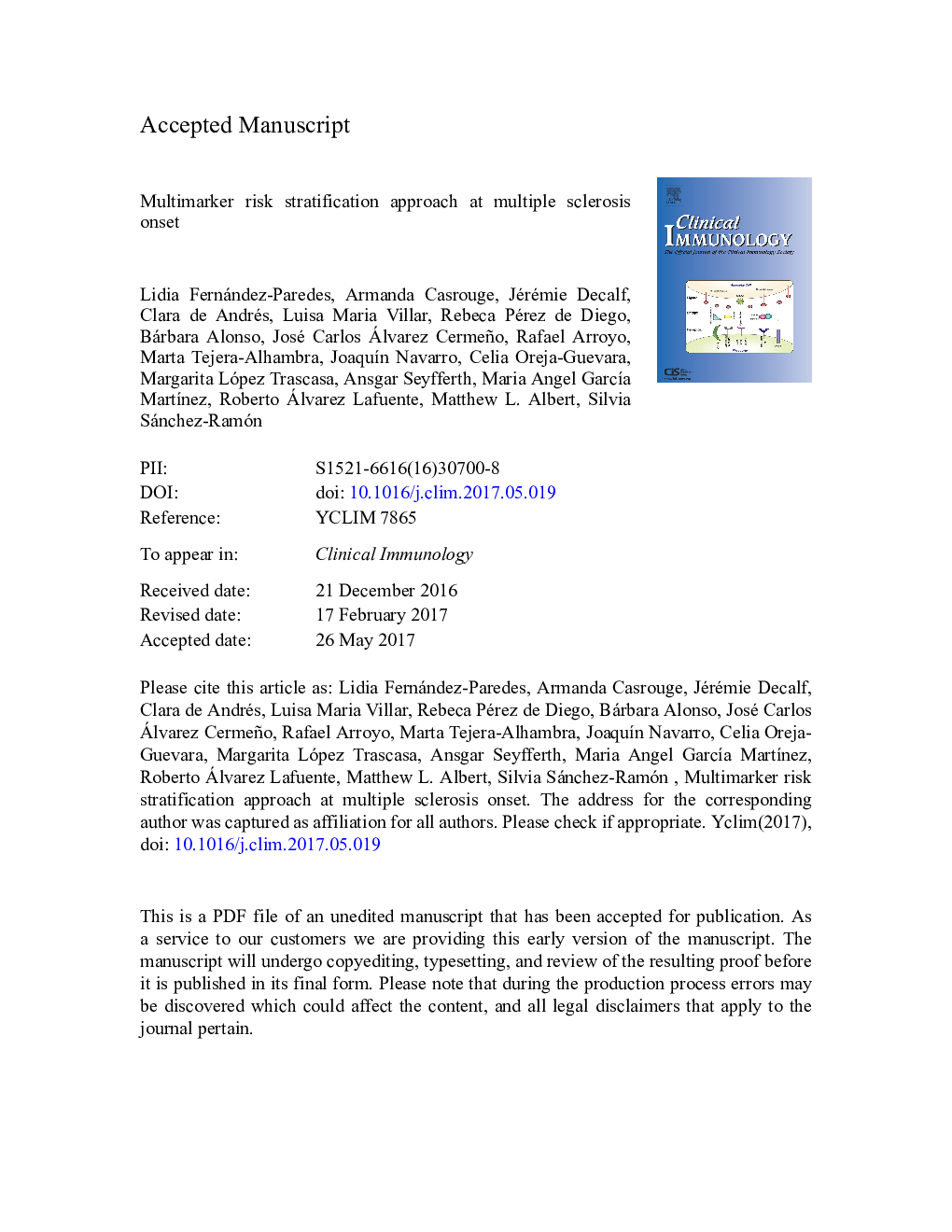| Article ID | Journal | Published Year | Pages | File Type |
|---|---|---|---|---|
| 5654825 | Clinical Immunology | 2017 | 31 Pages |
Abstract
Delay in the diagnosis of multiple sclerosis (MS) stems from the lack of specific clinical and analytical markers to assist in the early diagnosis and prediction of progressive course. We propose a decision-tree model that better defines early at onset MS patients and those with the progressive form by analysing a 12-biomarkers panel in serum and CSF samples of patients with MS, other neurological diseases (OND) and healthy contols. Thus, patients at onset of neurological disease were first classified by serum IL-7 levels < 141 pg/ml (OR = 6.51, p < 0.001). Combination of IL-7 and CXCL10 indicated risk for a specific MS clinical form, where IL-7 < 141 and CXCL10 < 570 pg/ml were associated with the highest risk for PP-MS (OR = 22, p = 0.01). Unexpectedly, both PP-MS and RR-MS patients shared significantly decreased prototypical biomarkers of inflammation and tissue regeneration in CSF than OND suggesting a defective intrinsic immune response playing a role at the beginning of the disease.
Keywords
Related Topics
Life Sciences
Immunology and Microbiology
Immunology
Authors
Fernández-Paredes Lidia, Casrouge Armanda, Decalf Jérémie, de Andrés Clara, Villar Luisa Maria, Pérez de Diego Rebeca, Alonso Bárbara, Álvarez Cermeño José Carlos, Arroyo Rafael, Tejera-Alhambra Marta, Navarro JoaquÃn, Oreja-Guevara Celia,
